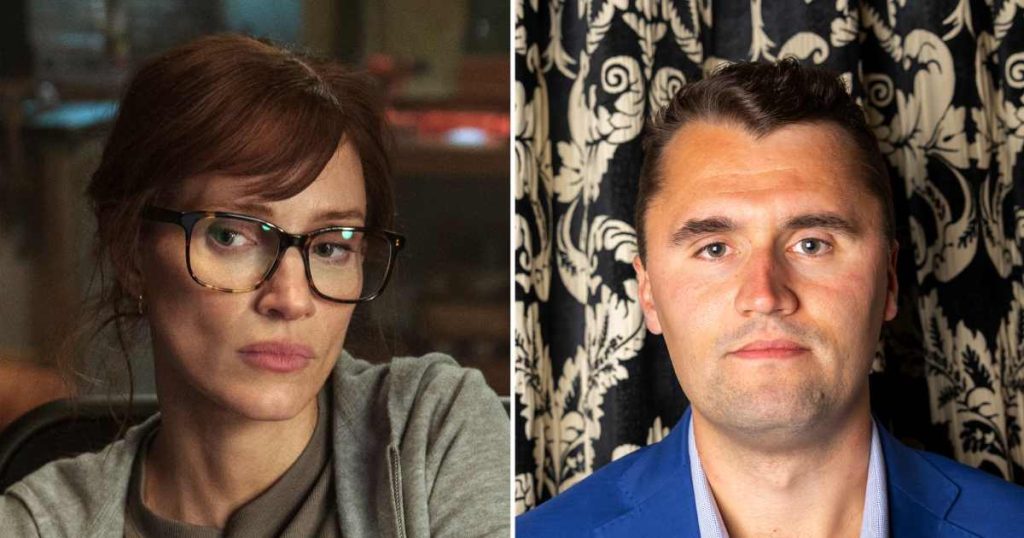Jessica Chastain Speaks Out on ‘The Savant’ Postponement Amid Rising Political Violence
In a thoughtful statement released Wednesday, Jessica Chastain addressed Apple TV+’s last-minute decision to postpone her series “The Savant” following the assassination of conservative commentator Charlie Kirk. The show, which explores efforts to prevent extremist violence before it happens, was pulled just three days before its scheduled September 26 premiere. Chastain expressed respect for Apple but made it clear she disagreed with the postponement, stating, “I’ve never shied away from difficult subjects, and while I wish this show wasn’t so relevant, unfortunately it is.” Her statement highlighted the tragic irony that a series about preventing violence was delayed because of real-world violence, underscoring the timeliness of its themes rather than diminishing their importance.
Chastain’s response placed Kirk’s assassination within a broader context of escalating political violence in America over the past five years. She referenced numerous incidents crossing ideological lines, including the January 6th Capitol attack, assassination attempts against former President Trump, attacks on Democratic representatives in Minnesota, the assault on Nancy Pelosi’s husband, and over 300 school shootings. “These incidents, though far from encompassing the full range of violence witnessed in the United States, illustrate a broader mindset that crosses the political spectrum and must be confronted,” Chastain wrote, emphasizing that political violence is not exclusive to any single ideology. This perspective frames “The Savant” not as exploitative but as an urgent examination of a growing national crisis that demands attention regardless of political affiliation.
The eight-episode series, based on a 2019 Cosmopolitan article titled “Is It Possible to Stop a Mass Shooting Before It Happens?”, follows an undercover investigator who infiltrates online hate groups to prevent domestic extremist attacks before they occur. The show is inspired by a real woman whose identity remains protected, adding authenticity to its exploration of preventative measures against ideologically motivated violence. While acknowledging Apple’s right to postpone the release, Chastain expressed hope that audiences would eventually see the series, noting that “The Savant is about the heroes who work every day to stop violence before it happens, and honoring their courage feels more urgent than ever.” Her statement suggests that delaying content that examines the roots of extremist violence might itself be a missed opportunity for social reflection at a critical moment.
Apple TV+’s decision to postpone “The Savant” reflects the entertainment industry’s ongoing struggle to navigate the intersection of creative expression and real-world tragedy. A spokesperson for the streaming service stated, “After careful consideration, we have made the decision to postpone The Savant. We appreciate your understanding and look forward to releasing the series at a future date.” This postponement follows Kirk’s shooting death at Utah Valley University on September 10, where the 31-year-old conservative activist was killed by a single shot fired from approximately 200 yards away while speaking at an event. The incident sent shockwaves through political circles across the spectrum and raised questions about how media companies should respond when fictional content suddenly parallels real-world violence. While some might view the delay as respectful, others, including Chastain, suggest it may inadvertently silence important conversations at precisely the moment they’re most needed.
The controversy surrounding “The Savant” parallels another recent media dustup involving Jimmy Kimmel, whose late-night show was temporarily suspended by ABC following comments he made about Kirk’s assassination and former President Trump’s reaction to it. The network initially preempted the show “indefinitely,” citing concerns about “inflaming a tense situation at an emotional moment for our country.” However, after significant backlash—including an open letter signed by 400 celebrities supporting Kimmel—ABC reversed course and allowed the show to return. This pattern of initial caution followed by reconsideration illustrates the complex calculus media companies face when balancing sensitivity with artistic freedom during politically charged moments. The parallel situations highlight how both entertainment and news organizations are grappling with when and how to address political violence in their programming.
When Kimmel returned to air on Tuesday, he delivered an emotional monologue acknowledging the controversy while maintaining his position. “I do wanna make something clear, because it’s important to me as a human, and that is, you understand that it was never my intention to make light of the murder of a young man,” Kimmel stated, adding that he didn’t think “there’s anything funny about” Kirk’s assassination. His nuanced response—expressing compassion for Kirk’s family while defending his right to commentary—reflects the difficult balance public figures must strike when addressing politically charged tragedies. Like Chastain, Kimmel faced the challenge of acknowledging the human toll of violence while still engaging with its broader social implications. Both cases illustrate how American media continues to navigate unprecedented levels of political polarization and violence, searching for appropriate ways to address these issues without either exploiting tragedy or avoiding necessary conversations about its causes and prevention.


